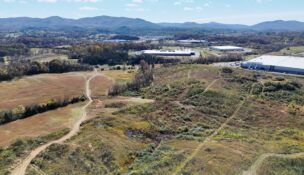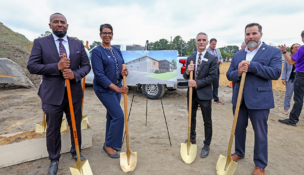Economic healing
Petersburg aims to become pharma hub
Rich Griset //January 30, 2022//
Over the years, Petersburg has become accustomed to bad economic news.
After Brown & Williamson Tobacco Corp., Petersburg’s largest employer for decades, left the city in 1985, Petersburg suffered an economic downturn from which it’s never quite recovered.
More recently, in 2016, Petersburg city government had a roughly $12 million shortfall in its operating budget, at least $14 million in unpaid bills and had spent all its reserves. The city manager and city attorney were fired, and there was talk that Petersburg might be downgraded from a city to a town.
But after undertaking some draconian financial measures that slashed the municipal budget, Petersburg now has reason for hope.
In November 2021, S&P Global Ratings raised the city’s bond rating three places, from BBB+ to an A+. Moody’s Investors Service also increased Petersburg to an A1 rating, signifying that the city has stable financial backing and ample cash reserves.
And now work is underway to make this city of 33,458 residents a pharmaceutical manufacturing hub and ingredient reserve, bringing economic investment, jobs and ancillary investment to the long-distressed area.
Not only are these developments a boon for Petersburg, but boosters also promise it will address national drug shortages and shore up national security. Already, roughly $500 million has been committed to jumpstart this effort to create end-to-end production of medicines.
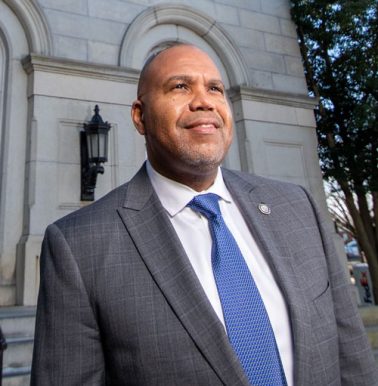
“It’s a huge transformation that’s going on,” says Petersburg Mayor Samuel Parham. “Once this thing is totally complete, we’re looking at having close to 1,000 jobs out there, and they’re all good-paying jobs, averaging around $80,000 a year.”
In Petersburg, the stage is set for an economic reawakening.
‘Dangerously dependent’
Answering a 911 call early last year, Dr. Eric Edwards didn’t have the drug he needed.
Volunteering as a paramedic in Chesterfield County, Edwards was assisting a person in cardiac arrest, a condition that usually calls for a prefilled syringe of adrenaline or epinephrine to be administered during cardiopulmonary resuscitation.
However, “I opened up the drug box and it wasn’t there,” says Edwards, who’s been a volunteer paramedic since his teenage years. “Instead, what they gave us was a different concentration where I had to literally dilute the solution and draw up and compound on the spot the dose I needed while CPR was going on.”
Though it doesn’t always take place during life and death circumstances, Edwards says he encounters drug shortages “every time I’m on an ambulance.” And he says that puts in stark relief the national drug shortage that America has been facing.
Most ambulances these days are short a couple drugs, and health care systems are relying on medicines that may be less safe or efficacious, Edwards says. While these drug shortages have plagued health care providers for more than a decade, the pandemic and the breakdown of the global supply chain have exacerbated the problem.
“We’ve become dangerously dependent on foreign sources for some of our most critical essential medicines that are necessary to sustain the health of our population, and this includes our active pharmacological ingredients,” says Edwards, co-founder and CEO of Richmond-based pharmaceutical startup Phlow Corp.
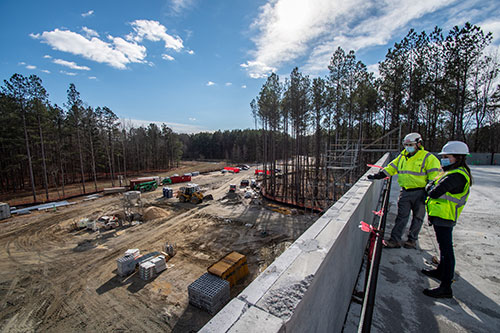
After President Donald Trump began a trade war with China in June 2018, the Biomedical Advanced Research and Development Authority (BARDA), an office of the U.S. Department of Health and Human Services, began conducting an analysis of national security, which found that 80% of the foundational materials needed for the U.S. pharmaceutical and biotech industry were sourced from China and India.
“If a bad guy wanted to turn off the spigot and not give us the essentials [to] make the final product, then all of a sudden that’s a national security issue,” explains Keith Boswell, president and CEO of Virginia’s Gateway Region, an economic development organization representing seven localities in the Petersburg region.
In May 2020, BARDA announced that Phlow had received a $354 million, four-year contract to manufacture generic medicines and pharmaceutical ingredients needed to treat COVID-19 that were only made overseas at the time; that contract may be extended for a total of $812 million over 10 years. Part of the effort now entails leading a team of organizations to assist with the goal of creating the country’s first Strategic Active Pharmaceutical Ingredient Reserve (SAPIR). Similar to the Strategic Petroleum Reserve, this initiative aims to create a stockpile for medicines and pharmaceutical ingredients in the interest of national security.
Private sector entities involved with this effort include Civica Inc., a Utah-based nonprofit that aims to alleviate drug shortages in American hospitals; AMPAC Fine Chemicals, a California-based manufacturer of active pharmaceutical ingredients (APIs); and the Medicines for All Institute, a Virginia Commonwealth University-based nonprofit that has received $40 million in grant funding from the Bill & Melinda Gates Foundation to develop HIV, malaria and tuberculosis medicines for use in Africa.
Phlow will pioneer processes that will increase the endeavor’s drug-making capabilities. AMPAC will manufacture the raw materials needed to create medicines. Civica Rx will manufacture the finished products.
Frank Gupton, CEO of the Medicines for All Institute and a Phlow co-founder, says that while the health care and pharmaceutical industries comprise 10% to 15% of the U.S. GDP, “it’s probably the only sector in our economy that isn’t using assembly line technology. That drives the cost up and makes it less competitive.”
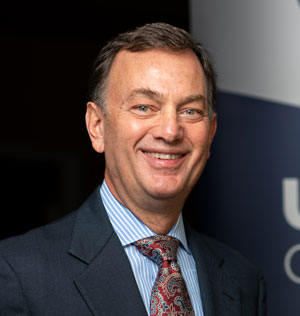
Under Gupton and Edwards’ direction, Phlow will use continuous manufacturing processes with flow reactors that they say increase product quality and reproducibility, have lower labor costs and are more environmentally friendly. That efficiency will help Phlow compete with foreign drug manufacturers with significantly lower labor costs, while also minimizing supply chain and labor disruption issues that have plagued American manufacturing during the pandemic.
Bipartisan support
So, why Petersburg?
It was a confluence of factors, starting with the 2019 announcement that AMPAC would take over Petersburg’s shuttered Boehringer Ingelheim Chemicals Inc. factory on Normandy Drive, creating hundreds of jobs. Now Phlow and Civica are building facilities within 100 yards of AMPAC’s factory.
With its waste treatment, tank storage, warehouse space and pollution abatement capabilities, not to mention its convenient location along Interstate 95, the existing factory was a boon for the project.
“Now you have this end-to-end capability at one site that didn’t exist in the United States prior to COVID to be able to produce these essential drugs,” says Gupton, chair of the Department of Chemical and Life Science Engineering at VCU’s College of Engineering.
AMPAC is currently manufacturing active pharmaceutical ingredients in Petersburg and announced in May 2021 that its facility would undergo a $25 million expansion, adding 125 jobs. Phlow’s facility and Civica’s $140 million factory are being constructed, with the latter expecting to come online near the end of 2023. Additionally, Phlow has joined a national coalition to supply children’s hospitals with essential medicines that are in short supply.
But these developments have generated some controversy as well, with some questioning why the Trump administration gave a $340 million, no-bid contract to Phlow, a startup founded in January 2020, just four months before the contract was awarded. Questions were also raised around the pressure Trump’s trade adviser, Peter Navarro, exerted on federal officials to speed up the contract award. In the early days of the pandemic, Navarro pushed the administration to acquire critical medical supplies, but was initially rebuffed by Trump. Instead, Navarro undertook an impromptu strategy to dedicate more than $1 billion in federal funding to the effort — including the award to Phlow — prompting multiple congressional investigations. (Navarro told House Democrats in December 2021 that he would not comply with a subpoena in the matter, citing a statement from former President Trump as a “direct order” to invoke executive privilege.)
Edwards previously founded Richmond-based pharmaceutical company Kaléo with his twin brother to sell an EpiPen competitor that was voluntarily recalled in 2015 following concerns that it might not have been delivering the proper dose of epinephrine. Kaléo ran into controversy in 2016 when it quintupled the price for a similar device that delivered naloxone, which can stop opioid overdoses. Edwards left the company in 2019; Kaléo has since been acquired by New York-based Marathon Asset Management LP.
Nevertheless, though the pharma hub effort was begun by the Trump administration, “this essential-medicine critical industrial base has been a priority” for the Biden administration too, Edwards says, adding that “it’s probably one of very few areas” that has both bipartisan and bicameral support in Washington, D.C., these days.
Regional endeavor
The effort to make Petersburg a pharmaceutical manufacturing hub isn’t just a top-down effort. Regional players also have worked to make it a reality.
In October 2021, it was announced that a coalition of private-public entities in Central Virginia had helped secure $2.5 million in seed funding from GO Virginia and other funders to develop pharmaceutical manufacturing in the region. With this funding, Activation Capital, a Richmond-area entrepreneurship-support and economic development organization, is endeavoring to create an accelerator program to foster more pharmaceutical businesses and research in Central Virginia, as well as develop new lab space for those companies.

For the $2.5 million in seed funding, Activation Capital received cash and in-kind contributions, then applied to GO Virginia for a cluster expansion grant; the state-funded and business-led state economic development program more than doubled it, contributing $1.4 million.
Now, Activation Capital is partnering with other partners to create new, comprehensive training programs for advanced pharmaceutical manufacturing technicians to support the Petersburg hub.
“It could be an economic engine for the region,” says Chandra Briggman, president and CEO of Activation Capital. “In Central Virginia, there’s a lot of manufacturing assets already here. A lot of industries that have gone away. This is an opportunity for us to revise manufacturing with new technologies, with new energy, new skill sets for the 21st century.”
In December 2021, the Biden administration announced that Activation Capital’s advanced pharma hub plan was a finalist for a $100 million grant through the U.S. Economic Development Administration’s Build Back Better Regional Challenge. It hasn’t been announced when awards will be made.
Also in 2021, Phlow formed a partnership with nonprofit organization U.S. Pharmacopeia to develop a laboratory operation at the Virginia Bio+Tech Research Park. Additionally, U.S. Rep. Abigail Spanberger co-sponsored a bill that would direct the federal government to create a national strategic reserve of essential medicine ingredients that could further these aims. Spanberger says the Promoting Readiness and Ensuring Proper API Reserves of Essential Medicines Act has both bipartisan and bicameral support; funding figures have not yet been supplied for this effort.
Parham, Petersburg’s mayor, says the city is poised to be at the forefront of pharmaceutical manufacturing.
“The challenge now is to grow our revenues and to increase jobs and be able to expand our city,” he says. “It’s just an exciting time to be in Petersburg.”
Boswell says the endeavor will help reverse Petersburg from a retreating economy to an advancing one.
“You can see how fast this thing is growing. We’ve got to keep pressing the gas and not let off at all,” Boswell says.
Edwards believes the pharma hub effort will be a win-win for the region, the companies and the nation as a whole.
“This is going to be the start of a significant manufacturing pharmaceutical cluster, but also an economic development catalyst,” he says. “The future’s going to be bright for Petersburg.”
t


